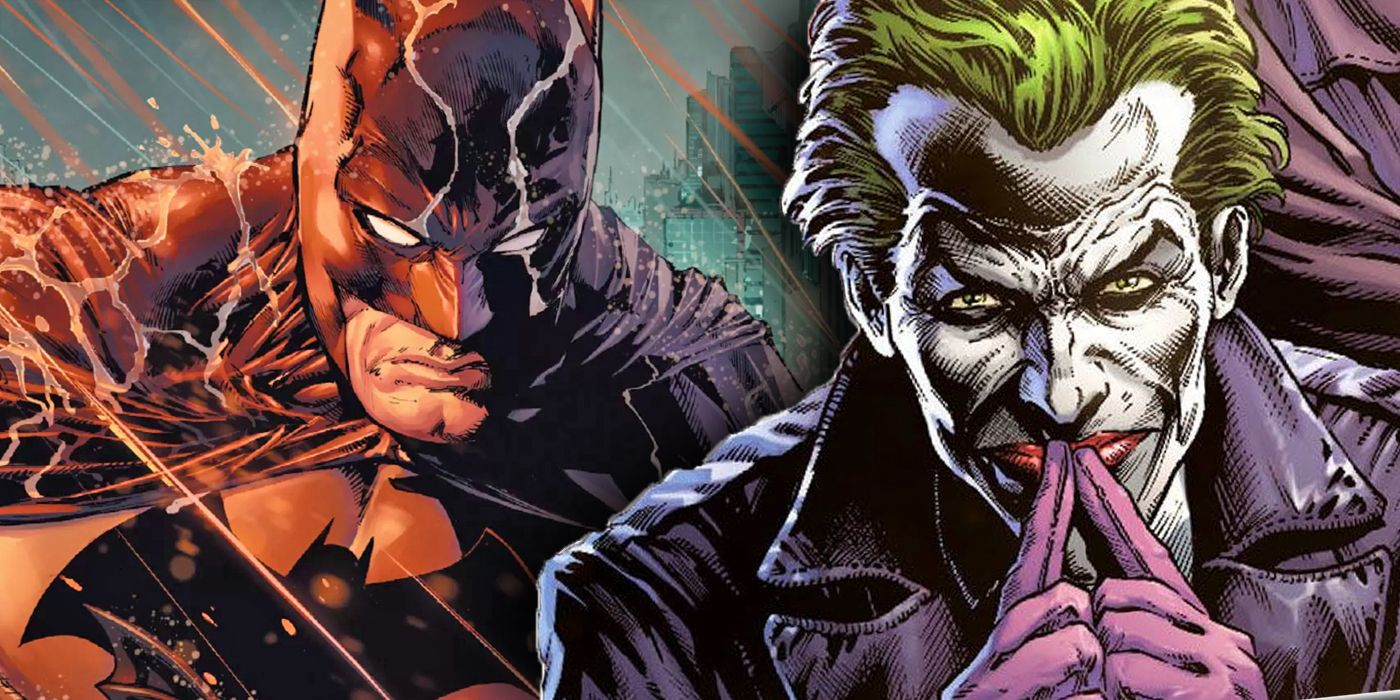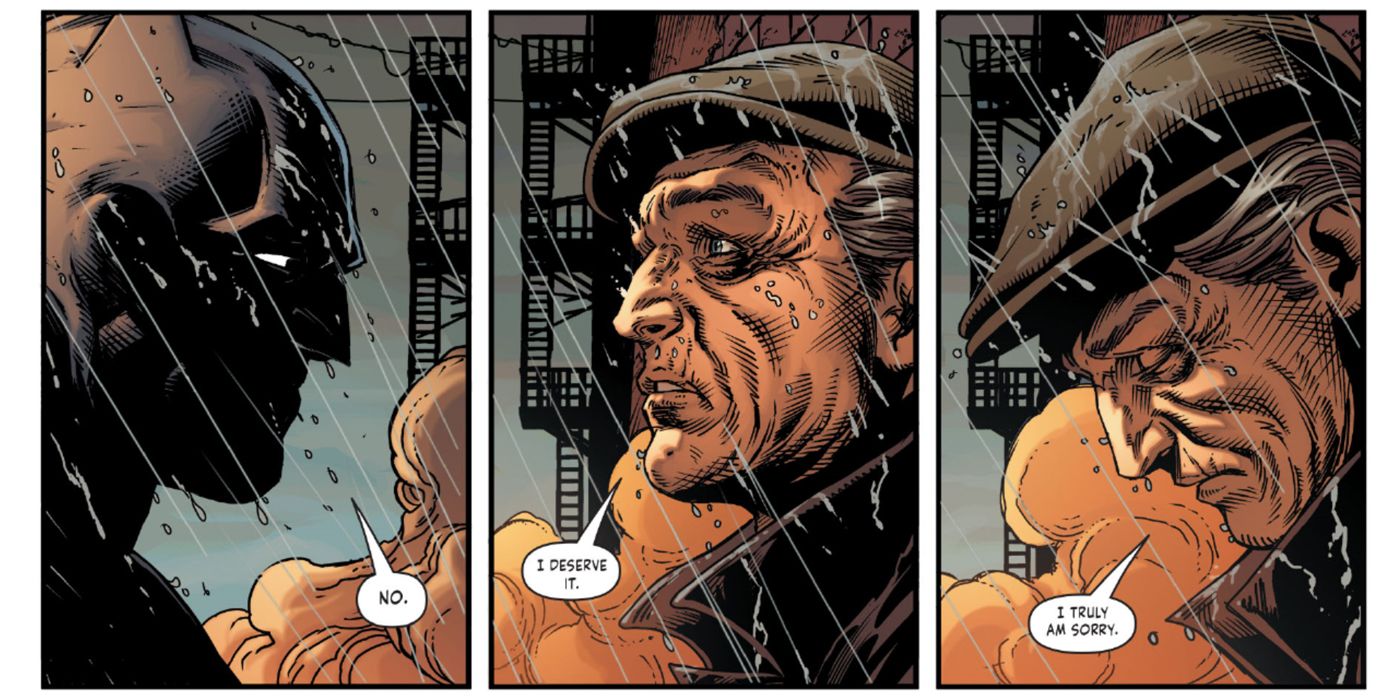WARNING: The following contains spoilers for Batman: Three Jokers #3, by Geoff Johns, Jason Fabok, Brad Anderson and Rob Leigh, on sale now.
Two very different stories that revolved around Batman's eternal conflict with the Joker have recently come to a close in James Tynion IV and Jorge Jimenez's "Joker War" and Geoff Johns and Jason Fabok's Batman: Three Jokers. The two tales revolved around the Clown Prince of Crime coming at the Dark Knight and Bat-Family in a more personal way than ever, as the supervillain was well aware of the team's various secret identities. Despite their differences, the two stories work perfectly as companion pieces exploring Batman and the Joker's never-ending battle, especially with Johns confirming he regards Three Jokers as canon to the main DC Universe.
"Joker War" ran through virtually every major ongoing series in the Bat-Family of titles and, true to its summertime publication schedule, delivered explosive, bombastic action for the fate of Gotham City. After seizing control of the Wayne Family fortune, the Joker armed his goons with the Caped Crusader's vast arsenal of weapons and vehicles and plunged the city into fiery chaos while Batman was temporarily incapacitated by the Joker's new righthand woman Punchline. Batman was eventually able to recover and take back his city, defeating the Joker in a brutal confrontation inside of Ace Chemicals.
Three Jokers, despite increasing the number of Clown Princes of Crime to a full trio, went deeper and more psychological rather than bigger and more externally grandiose. Batman, along with Batgirl and Red Hood, were forced to confront their unresolved pain and trauma inflicted by the villains over the course of their crimefighting careers. That isn't to say there weren't any major action set pieces -- every single issue had at least one -- but the narrative focus was always on that psychological terror and pain. It really put Bruce through the wringer -- the Jokers kidnapped his parents' murderer Joe Chill to potentially transform him into one of their own, with Chill intended to become the ultimate iteration of the supervillain as the definitive traumatic blow to Bruce.
In regards to canon, when Three Jokers and "Joker War" take place in relation to one another is one of those continuity questions perhaps better left unexplored. Alfred Pennyworth appears alive and well throughout the course of Three Jokers while his death looms large over the Bat-Family during the events of "Joker War." Jim Gordon doesn't know his daughter's identity as Batgirl while Barbara tacitly reveals her double life to him in a moment of anger at the end of Three Jokers. Finally, Jason Todd drops his Red Hood persona at the end of Three Jokers to impress Barbara but is seen dropping the alter ego under much different circumstances in immediate aftermath of "Joker War."
With the upcoming end of Dark Nights: Death Metal and the subsequent Future State likely making changes to the fabric of reality in the DC Universe, the discrepancies between the two stories may be sorted out by the cataclysmic events. Continuity aside, both tales are well-crafted looks at Batman and the Joker's conflict taking a darker, more personal turn; one delivering the blockbuster thrills and fiery action while the other a psychological character study, with three members of the Bat-Family juxtaposed against a trio of Jokers, each sporting a different approach to crime. Both stories are perfectly complementary, showcasing exactly why the Clown Prince of Crime is the greatest villain the Dark Knight has ever known.


